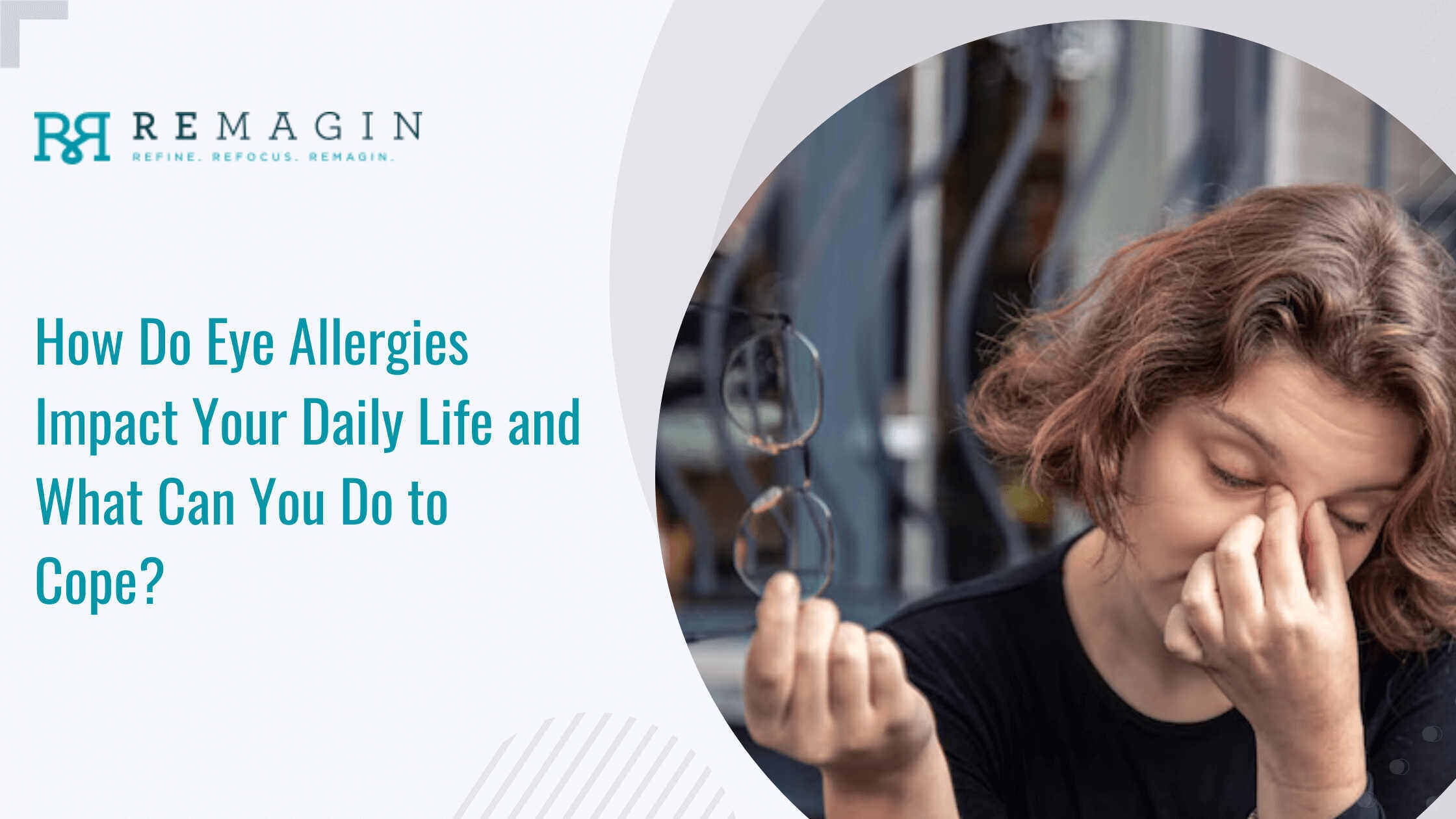



Eye allergies are a common problem that affects millions of people worldwide. They can cause persistent discomfort and irritation, which often interfere with daily activities and reduce quality of life. Symptoms such as itchy, red, and watery eyes may seem minor initially, but when they linger or worsen, they can become a constant distraction and source of frustration.
Understanding what causes eye allergies, how they impact your day-to-day routine, and what you can do to manage them is crucial for maintaining healthy, comfortable eyes.
Eye allergies, also known as allergic conjunctivitis, occur when your immune system overreacts to harmless substances called allergens. Common triggers include pollen from trees and grasses, dust mites, pet dander, mold spores, and certain chemicals. When these allergens come into contact with the eyes, they trigger an immune response that causes inflammation and a range of symptoms.
The result is often itchy eyes, excessive tearing or watery eyes, redness, and general discomfort or irritation. These symptoms can affect your ability to focus at work or school, make driving difficult due to blurred vision or eye irritation, and disrupt your sleep if discomfort worsens at night. In short, eye allergies can interfere with many aspects of your life if left unmanaged.
The symptoms of eye allergies can vary from mild to severe but commonly include:
Itchy eyes are primarily caused by histamine release during allergic reactions, while watery eyes result from your body’s attempt to wash away the irritants. It’s crucial to distinguish eye allergies from other eye conditions, such as infections or dry eye syndrome, which may require different treatments.
Living with eye allergies can pose many challenges. Constant irritation and discomfort make concentrating on tasks such as reading, working on a computer, or driving hard. The discomfort can also affect your mood, leading to frustration or irritability.
Sleep disturbances are common because itching and watering often worsen at night or early morning. This lack of restful sleep contributes to daytime fatigue and reduced productivity. Additionally, during peak allergy seasons, many people limit outdoor activities to avoid exposure to allergens, which can impact physical health and social life.
The cumulative effect of these challenges can lead to emotional stress and affect your overall quality of life.
Managing eye allergies involves a combination of treatments and lifestyle changes aimed at reducing exposure to allergens and relieving symptoms:
Here are some practical tips to reduce the impact of eye allergies on your daily life:
It’s essential to seek medical advice if you experience any of the following:
An eye care professional can thoroughly examine and recommend treatments tailored to your condition, helping you regain comfort and protect your vision.
Eye allergies can significantly affect your day-to-day comfort, but you can regain control with the proper knowledge and treatment. At Remagin, our team offers expert advice and personalized treatment options to reduce symptoms and protect your vision. We focus on empowering you with practical tools and effective therapies so that eye allergies no longer disrupt your life.
If you’re struggling with persistent eye irritation, redness, or discomfort, don’t wait. Contact us today to arrange a thorough evaluation and take the first step toward a more transparent, comfortable future.
Wearing sunglasses indoors generally does not help with eye allergies. However, wearing wraparound sunglasses outdoors can protect your eyes from wind, pollen, and dust, reducing symptoms.
Some over-the-counter allergy eye drops are safe for short-term use, but daily or prolonged use without professional guidance can lead to side effects like rebound redness or irritation. It’s best to consult an eye care professional for long-term management.
While eye allergies typically do not cause permanent damage, chronic untreated inflammation can increase the risk of complications like infections or damage to the corneal surface. Prompt treatment is essential.
Swimming can sometimes worsen allergies because pool chemicals like chlorine can irritate sensitive eyes and skin. Exposure to these chemicals may increase redness, itching, and discomfort for individuals prone to allergies, making symptoms feel more severe after swimming.
Eye allergies usually cause temporary symptoms like itching, redness, and irritation. However, if left untreated, chronic inflammation can damage the eye’s surface, increase infection risk, and lead to complications such as dry eye syndrome. Proper management is key to preventing long-term effects and preserving eye health.